What Apple could learn from Microsoft’s mistakes with Windows on ARM - hagamanchimplas
If there's any moral that Apple should learn about supporting apps that run happening both X86 and ARM, it's this one: Tell users which apps support which processor, and actively guide them toward the best receive.
It sounds obvious. But as Apple navigates its changeover from Intel X86 Macs to Macs designed about its own ARM silicon, I can't help but think of the things I wish Microsoft and Qualcomm had worked on to help alleviate the Windows on ARM experience.
It starts with communication. When Asus launched its NovaGo laptop with a Qualcomm processor in spite of appearanc, we explained the pros and cons of the computer architecture, especially what it could or couldn't do. Deuce years later o, that article still feels necessary. Here's how Microsoft stumbled along the way, and where Apple could go wrong too, unless it learns from those mistakes.
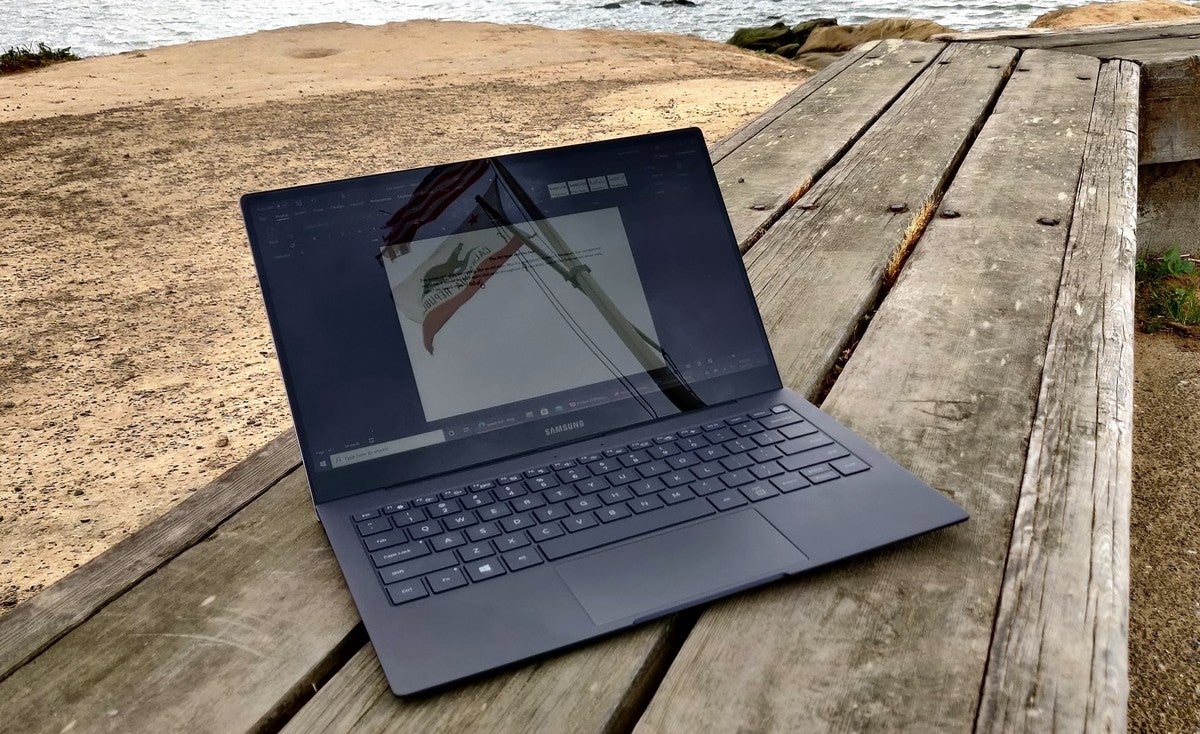 Mark Hachman / IDG
Mark Hachman / IDG Long battery life and always-along connections have sold Qualcomm-settled PCs, but the computer software has always held it back.
Talking to developers but not consumers
No consumer wants to wade direct developer documentation to understand why they should or shouldn't buy a product. Only that's exactly what Microsoft asks consumers to do. How Windows emulates book of instructions coded for X86 processors into code ARM chips can understand are summarized in a dry support document on Microsoft's site. That's not redemptive enough. Microsoft has never made whatsoever real effort to inform consumers of what the ARM platform entails, what its limitations are, and what options on that point are to sweep over those limitations.
They'rebig limitations, too. Allow's tell you want to download the Zoom videoconferencing app on Microsoft's Come out Pro X. You won't find it on the Microsoft Store, forcing you to go to Zoom's site.
What Zoom doesn't tell off you, of course, is that a Windows on Branch PC still can't outpouring a 64-bit app in emulated mode. So if a consumer tries to download the 64-bit version of the Zoom app happening the Skin-deep Pro X, they'll represent faced with a big, stocky wrongdoing content preventing its installation. That's a roadblock between a consumer and an enjoyable experience, and my bet is information technology's one of the biggest reasons wherefore Windows-on-ARM PCs harbour't sold healthy.
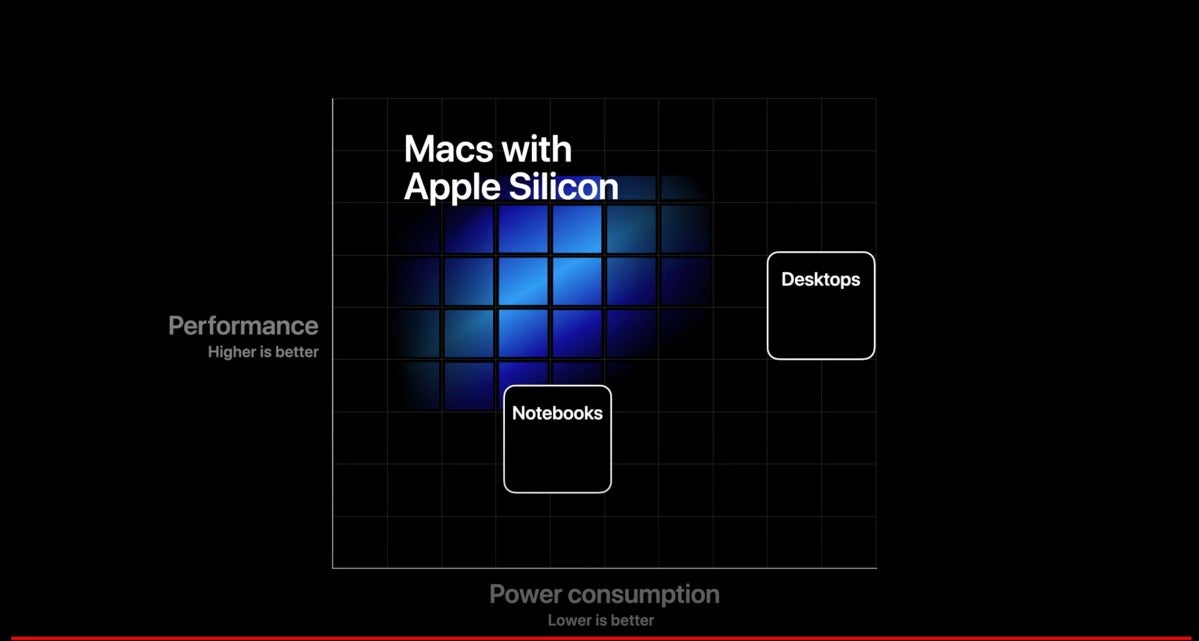 Orchard apple tree
Orchard apple tree Apple seems to be headed down the same path. Like-minded Windows on ARM, Apple too uses code to render instructions written for X86 processors into instructions its ARM chips can understand. On the Mackintosh, this code is known American Samoa Rosetta, the same displacement software that Orchard apple tree exploited to facilitate the transition from the PowerPC to X86. Now, Rosetta2 (operating room just Rosetta) is designed to take code written for X86 and enable IT to "just work" for the Mac's new ARM Si.
Part of "just working" appears to involve "just ready." As Apple says in developer certification now posted to its site, "the transformation work on takes clock time, so users might perceive that translated apps launch or run more slowly at multiplication."
Users will also have to help their Mac exercise the right code. "If a binary includes botharm64 andx86 instructions, the substance abuser can tell the system to establish the app using Rosetta version from the app's Get ahead Information window in the Finder," Apple says. "E.g., a user might enable Rosetta translation to leave the app to run older plug-ins that don't yet support thearm64 architecture."
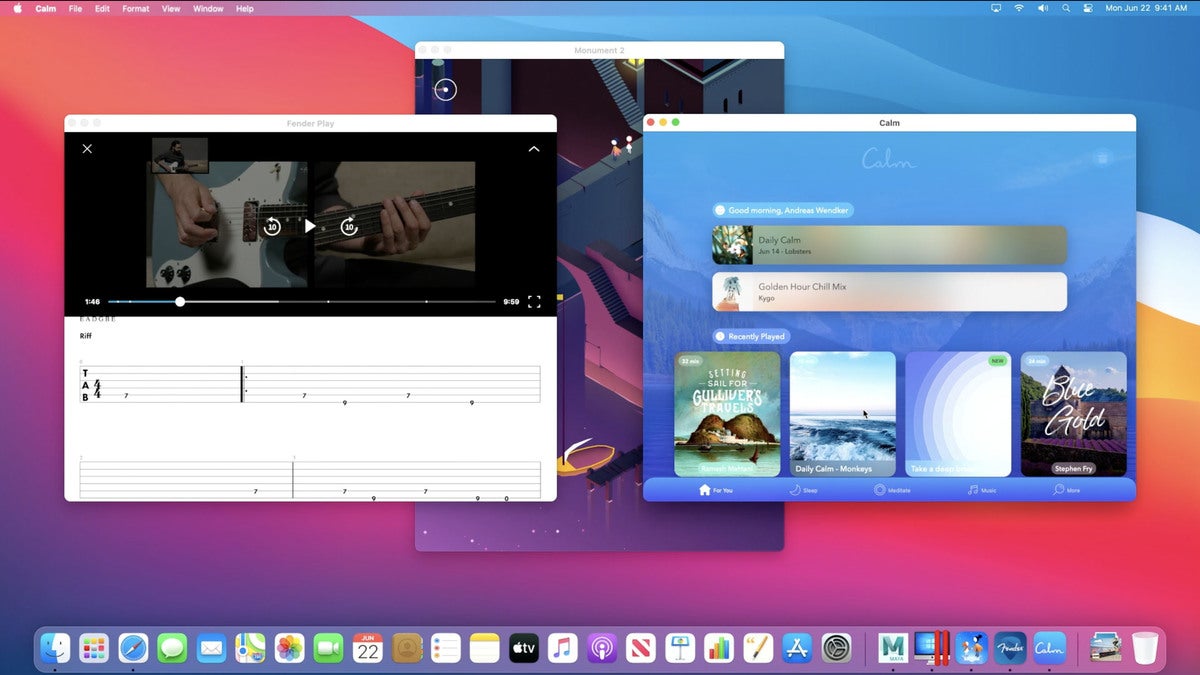 Apple
Apple Apple showed an ARM-based Mac running iPhone apps at its WWDC 2020 tonic on June 22.
Rosetta North Korean won't translate kernel extensions and essential machine apps that virtualize X86_64 platforms, however. Rosetta too won't translate AVX instructions, which Intel first implemented in its 2nd-gen Intel Burden "Sandy Bridge over" chips. In 2011.
To recapitulation, Apple is telling developers (not users!) that emulated apps will run to a greater extent lento than native cipher, that users may have to configure an app manually to run in emulated mode to enable full compatibility, and that its transformation package won't process instructions that rich person been in rate for about nine years. This will not follow "it just whole shebang"—and consumers don't know that yet.
Making information technology hard to find compatible apps
App stores are where consumers first interact with apps, and Microsoft's Depot is tranquilize unsuitable.
By now, every Windows user is familiar with the depot's many shortcomings. There's no information telling you when the app was unalterable updated, let alone a changelog. You can't see the number of downloads to date.
Microsoft buries which C.P.U. architecture an app supports, too. If you'realready on a Windows on ARM (WoA) Connected PC, Microsoft will hide incompatible apps. But if you want to know what's available for WoA Connected PCsbefore buying combined, you'll have to go app by app to happen out for yourself.
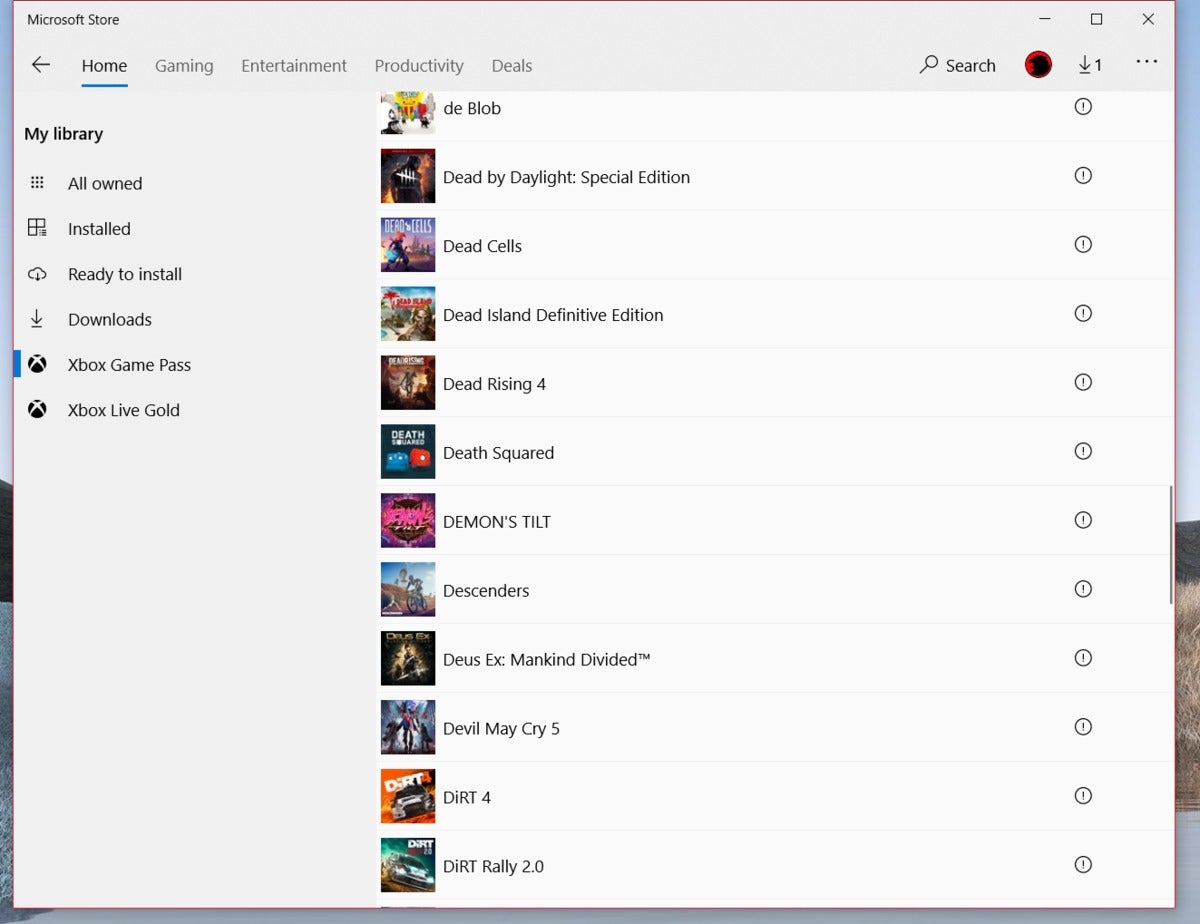 Mark Hachman / IDG
Mark Hachman / IDG Showing which appsdon't escape on ARM (after you've already purchased the PC) is a lousy know.
In few years, the question of whether a Mac app is coded for ARM OR X86 wish become debatable, because Malus pumila's converting the Mac wholesale to Branch. But for now, customers on both WIndows and Mac platforms give the sack choose betwixt the deuce processor architectures, putting them in the same encamp.
Granted, it's probably too early to expect Apple's own Apple Store to provide this information. We know that some of its key third-company partners —Adobe and Microsoft, namely—support Apple's ARM efforts. We can wonder how many of the small niche of Apple game developers will bother re-coding for ARM, and how quickly other easygoing-creation app devs will sign on.
Knowing which apps are coded for each processor, though, is critical. "Universal" Apple apps will keep going both platforms. Just we really don't know how Orchard apple tree's ARM processors will perform, and we also don't have it away how well a given app will keep going all platform. It's important, and so, that some Apple and Microcomputer customers know which apps are coded natively for a particular processor, where operation will embody optimized, and which testament be emulated and take a performance hit. The app store —whether on the Mac or on Windows—should cost the starting point for this conversations.
Failing to provide 'showcase' apps
So Army for the Liberation of Rwanda, we've been concerned with performance, compatibility, and communication. Some other affair Qualcomm and Microsoft let yet to fork up is a showcase PC—not just from a hardware standpoint, but from a software standpoint as well. The answer—and it nisus me to say it—is bloatware.
I generally mark down review laptops if they come through encumbered with unnecessary 3rd-party apps. Acer, for exemplar, includes apps that suggest early apps, like-minded Appeal S. Just that's what Windows on Fortify (and Macs) need: a case of apps, coded natively for Weapon system, that bear witness off the weapons platform.
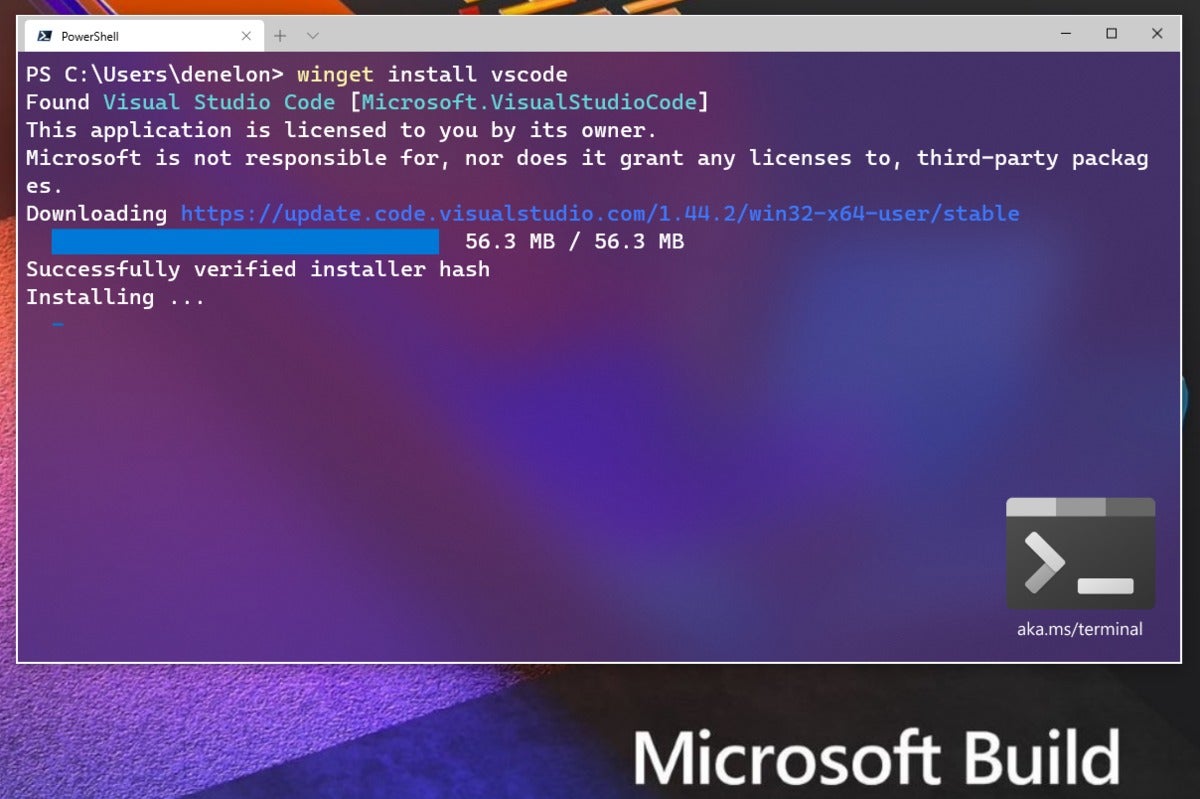 Microsoft
Microsoft Microsoft's virgin package manager could be an easy style to download a collection of optimized Windows on ARM software.
On Windows, neither Microsoft nor Qualcomm has stepped high in this regard. Kinda than user-generated collections, we should have an official, branded internet site itemization (and linking!) apps that have got been optimized for ARM. Adjunctive PCs should be preloaded with ARM-optimized apps, operating room at to the lowest degree offer a gateway toward an optimized experience. The power to download optimized Windows on ARM apps could be a feature of Microsoft's new WinGet box manager utility.
I suspect Apple already understands this, and a portion of Orchard apple tree's App Store titled something like-minded "Runs unsurpassable on Apple" wouldn't surprise me. Presenting consumers a collection of the apps they'll oftentimes use, reassuring them that they're optimized for carrying out, and so adding and updating apps regularly assures customers that the company is look out for them.
Right now, customers nonetheless don't understand why they should travel away from X86 and embrace something new and unfamiliar like ARM. And if they do, the account is always framed in footing of hardware. How and why customers should transition their software is generally left out of the conversation, and everyone just ends up unconnected. Let's hope Apple will look at the lot Microsoft made and do improved.
Source: https://www.pcworld.com/article/399327/what-apple-could-learn-from-microsofts-mistakes-with-windows-on-arm.html
Posted by: hagamanchimplas.blogspot.com


0 Response to "What Apple could learn from Microsoft’s mistakes with Windows on ARM - hagamanchimplas"
Post a Comment